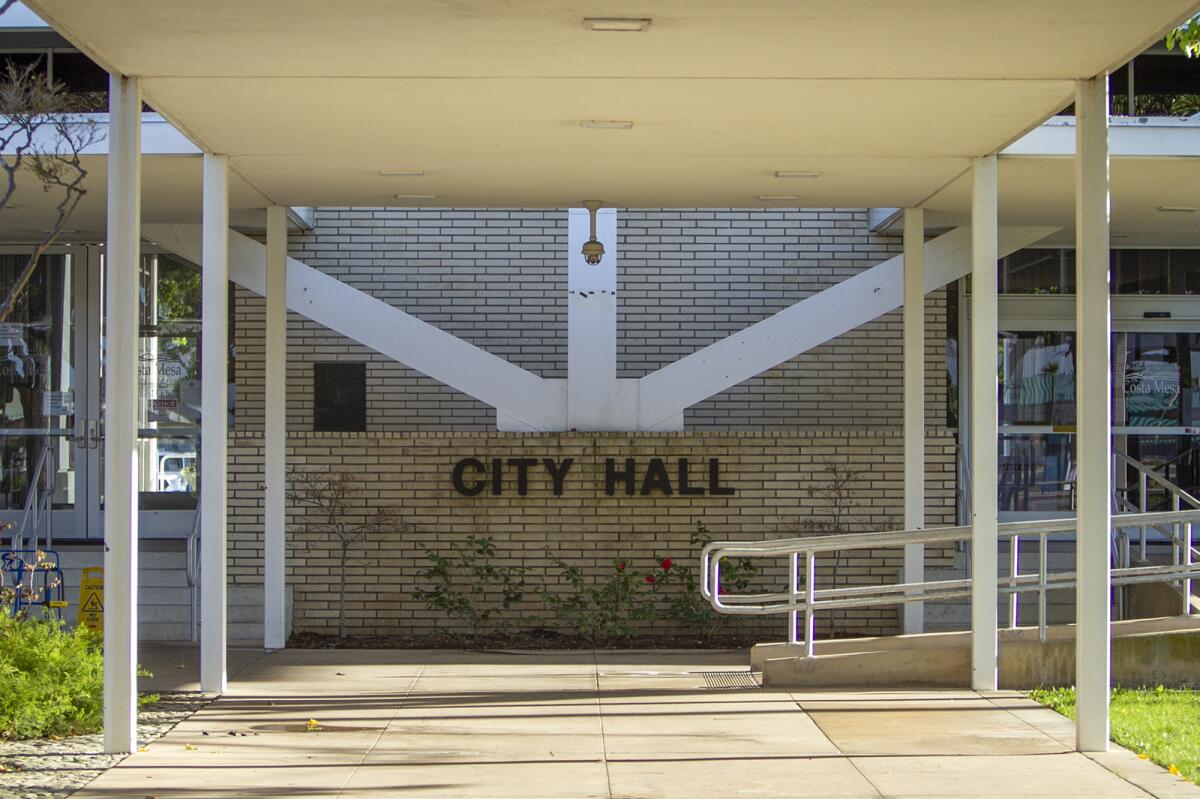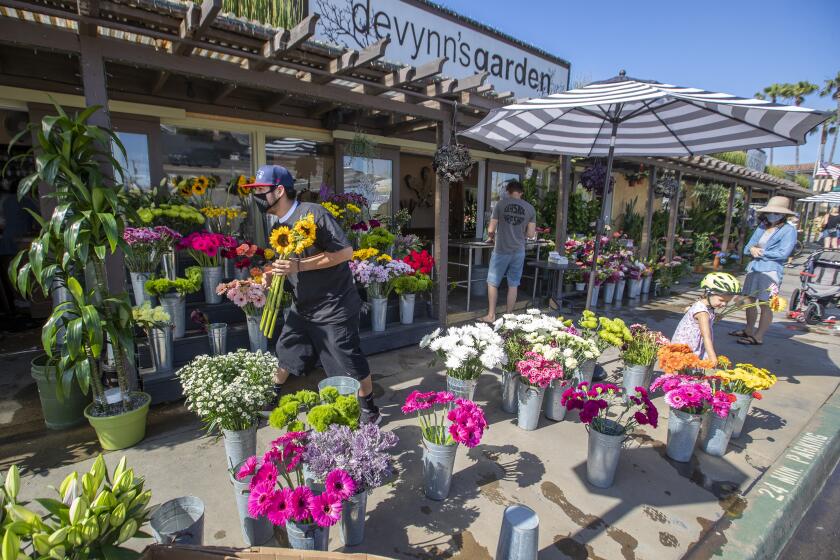Costa Mesa ponders changing 2 voter-backed measures to accommodate growth, housing

- Share via
Two initiatives passed by Costa Mesa voters in 2016 — one creating a zone for permitted cannabis businesses and another requiring voter approval for development projects that pass certain thresholds — could soon return to the ballot with some significant modifications.
City Council members considered Tuesday whether to conduct a survey to gauge community interest on widening Measure X to allow for the expansion of the types of cannabis businesses and where inside city limits they could be located.
The panel also looked at Measure Y, a citizen-backed initiative that requires voter approval of projects requiring general plan amendments or zoning changes, or which would add 40 or more dwelling units or 10,000 or more square feet of commercial space.
Four years in, Measure Y is proving too prohibitive to developers whose projects would otherwise benefit the city, Barry Curtis, Costa Mesa’s economic and development services director, told the council Tuesday.
The measure could similarly block projects that would help the city meet steep housing allocations anticipated to come from the state later this year.
“A variety of development projects have not been pursued by applicants, because the projects would be subject to Measure Y,” Curtis said. “The extended time needed to process an application and the requisite uncertainty associated with a ballot measure is very likely to affect [our] ability to provide affordable housing.”
Email david.carrillo@latimes.com to sign up for the newsletter featuring the latest news involving Newport Beach, Huntington Beach, Costa Mesa, Laguna Beach, Fountain Valley and other parts of Orange County.
Costa Mesa anticipates having to accommodate as many as 11,727 additional residential units in the housing element of its general plan in the next nine years, with about 40% designated for low- and very low-income occupancy.
Curtis suggested the city might define affordable housing projects that would be exempt from a Measure Y vote or create an area, such as north of the 405 Freeway, where properties would automatically be exempt.
Talk of changing the ballot measures comes as the City Council is poised in June to hear a pitch from Beverly Hills-based developer Rose Equities for One Metro West — a 15.3-acre residential and mixed use development that would include 1,057 units, 106 of which would qualify as low-income.
The project is planned for 1683 Sunflower Ave., the site of a light industrial building currently zoned for “Industrial Park” and adjacent to the zone where Measure X businesses operate.
If One Metro West were approved, the city would have to rezone the area north of the 405 Freeway and west of Harbor Boulevard to “Planned Development Residential-High Density.”
Such a move would block future cannabis businesses from locating there and bringing their tax benefit to Costa Mesa. Planner Nancy Huynh estimated during a May 12 planning commission meeting Measure X had so far this year generated $640,000 in tax revenue.
Council members ultimately approved hiring a consultant to conduct market research on public support of the Measure X changes and return to the council by mid-June with findings and recommendations for a ballot measure to go before voters in November.
Councilwoman Arlis Reynolds said she was in favor of taking the public’s pulse before drafting any ballot language.
“I think it behooves us to be driven by data,” Reynolds said.
The council’s discussion on potentially modifying Measure Y proved complicated and lasted into the early morning hours as residents, professionals and citizen activists opined on both sides of the issue.
Jay Humphrey, who helped gather signatures in 2016 to put the measure on the ballot, suggested council members look at a long-term plan for meeting housing needs, rather than shifting rules to allow for certain developments.
“If you really want to simply gut Measure Y, just put your names on it and put it on the ballot — don’t play around,” Humphrey said in a telephoned comment.
John Hanna, a trustee at the Rancho Santiago Community College District, said the decision on whether to amend Y should be left up to voters.
“If there’s something that goes forward, it goes to the people, the very same people who voted for Measure Y,” he said. “If they don’t like it, they can vote it down.”
At around 1:15 a.m., council members agreed to reconvene May 26 to further discuss Measure Y amendments.
If the modification is approved, consultants will survey the public on Measure X and Y changes together. City Attorney Kimberly Barlow said the city clerk needs to file ballot language with the county by August.
Another item on Tuesday’s agenda, whether to allow for the purchase of safe and sane fireworks during the Fourth of July season, will also be heard May 26.
All the latest on Orange County from Orange County.
Get our free TimesOC newsletter.
You may occasionally receive promotional content from the Daily Pilot.








